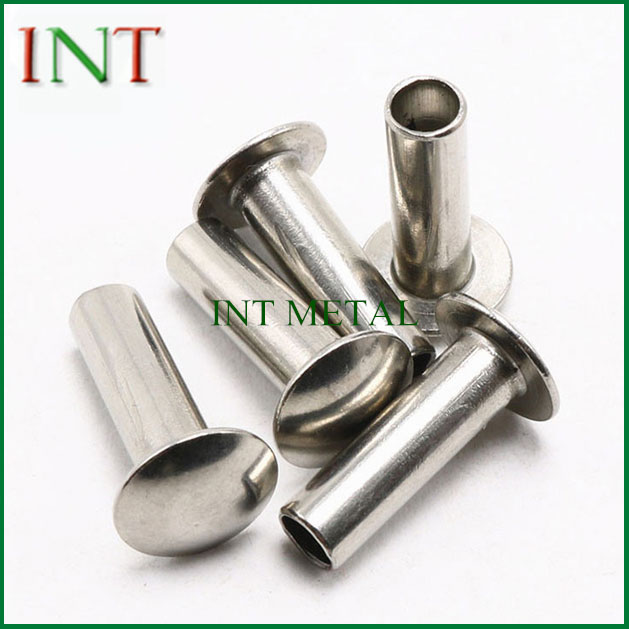Steel vs. Aluminum vs. Copper Rivets: A Comparative Analysis
2024-05-10
In the realm of fastening solutions, rivets reign supreme as versatile connectors, offering strength, durability, and reliability in a wide range of industrial and manufacturing applications. Among the various types of rivets available, hollow steel, aluminum, and copper rivets stand out as popular choices, each with its own unique properties and characteristics. Let's embark on a comparative journey to explore how these rivets stack up against each other in terms of strength, corrosion resistance, and cost-effectiveness.
Strength:
Hollow steel rivets are renowned for their exceptional strength and durability, making them suitable for heavy-duty applications where high load-bearing capacity is essential. Steel rivets offer superior tensile and shear strength compared to aluminum and copper rivets, making them ideal for structural and mechanical assemblies subjected to significant mechanical stresses.
Aluminum Rivets:
Aluminum rivets are lightweight and offer good corrosion resistance, but they generally have lower strength compared to steel rivets. While aluminum rivets are suitable for lightweight applications or non-structural assemblies, they may not provide the necessary strength for heavy-duty loads or high-stress environments.
Copper Rivets:
Copper rivets offer excellent electrical conductivity and corrosion resistance but are generally softer and less strong than steel or aluminum rivets. While copper rivets are suitable for applications where electrical conductivity is a priority, they may not provide sufficient strength for structural or mechanical assemblies.
Corrosion Resistance:
Hollow Steel Rivets:
Hollow steel rivets are typically made from corrosion-resistant steel alloys, offering excellent protection against rust and degradation in harsh environments. However, steel rivets may still be susceptible to corrosion in certain conditions, particularly in marine or corrosive environments.
Aluminum Rivets:
Aluminum rivets offer good corrosion resistance due to the natural oxide layer that forms on their surface, providing protection against rust and corrosion in most environments. However, aluminum rivets may experience galvanic corrosion when in contact with dissimilar metals, requiring careful selection and insulation to prevent corrosion issues.
Copper Rivets:
Copper rivets offer excellent corrosion resistance in most environments, making them ideal for applications where exposure to moisture or chemicals is a concern. However, copper rivets may tarnish over time, particularly in outdoor or marine environments, requiring periodic maintenance to maintain their appearance and performance.
Cost-Effectiveness:
Hollow Steel Rivets:
Hollow steel rivets are generally cost-effective compared to aluminum or copper rivets, offering a balance of strength, durability, and affordability. Steel rivets are readily available and can be manufactured in a variety of sizes and configurations to suit different applications, making them a cost-effective choice for many industrial and manufacturing projects.
Aluminum Rivets:
Aluminum rivets are typically more expensive than steel rivets but may offer cost savings in certain applications due to their lightweight construction and corrosion resistance. While aluminum rivets may have a higher initial cost, they may provide long-term savings by reducing weight, material usage, and maintenance requirements in certain applications.
Copper Rivets:
Copper rivets are generally more expensive than steel or aluminum rivets due to the higher cost of copper as a raw material. While copper rivets offer excellent corrosion resistance and electrical conductivity, their higher cost may limit their use to specialized applications where these properties are essential.
Conclusion:
In conclusion, hollow steel, aluminum, and copper rivets each offer unique strengths and advantages depending on the specific requirements of the application. While steel rivets excel in terms of strength, durability, and cost-effectiveness, aluminum rivets offer lightweight construction and corrosion resistance, and copper rivets provide excellent corrosion resistance and electrical conductivity. By carefully considering the properties and characteristics of each type of rivet, engineers and manufacturers can select the most suitable option for their projects, ensuring optimal performance and reliability in diverse industrial and manufacturing applications.



